- Home
- Jennifer Ashley
The Untamed MacKenzie Page 5
The Untamed MacKenzie Read online
Page 5
Now Fellows stood very close to her, and Louisa wanted to kiss him again. The first time she’d done so, she’d told herself she felt sorry for him. But she knew it had been more than that.
It was more than that now. The need to kiss him rose like an uncontrolled fire. It sent Louisa up on her tiptoes in her high-heeled boots, making her lean into him, wanting to feel his strength and his warmth.
Fellows’ eyes started to close, his body coming down to meet hers. The hunger she saw, before his lids hid his eyes, sparked an answering hunger deep inside her.
Louisa drifted into him, welcoming his heat. She felt the touch of his breath, which would be followed by his lips . . .
Then wasn’t. Fellows jerked back, eyes opening, a hard light entering them.
He lifted his hand out of her pocket. Between his broad fingers was a small bottle of cut glass with a little stopper, a tiny amount of liquid inside it.
Chapter Six
Louisa, still ensnared by the kiss that hadn’t happened, stared at the bottle uncomprehendingly. “What is that?”
“That is what I am asking you.” Fellows’ voice was harsh.
“I don’t know.” Louisa held up her hands. “It isn’t mine.”
“It was in your pocket.” His gaze grew even colder.
“You must have put it there then. I certainly didn’t.”
“Louisa.” Fellows lifted the small bottle in front of her face. “I need you to explain this to me.”
“I didn’t put it there,” Louisa repeated in desperation. “I cannot help it if you don’t believe me. I don’t even know what it is.”
“It’s a perfume bottle,” Fellows said. “But this is not perfume.”
“I can see that it’s a perfume bottle. How do you know it’s not perfume inside it?”
“Wrong consistency.”
Hysterical laughter tried to bubble up again. “And you’re an expert at what ladies carry in their perfume bottles?”
“I am an expert in the many ways people kill other people and try to cover it up.”
Louisa’s eyes widened. “I’ve told you. I didn’t kill him.”
“Someone is going to a lot of trouble to make it look as though you did. Why?”
“Well, I don’t know,” Louisa nearly shouted. “Perhaps someone did not want Hargate to marry me. Perhaps the poison was meant for me, or it was in the teapot, for us both. Only I didn’t drink it.”
Fellows’ eyes flickered, but he went on remorselessly. “Bit of a gamble, wasn’t it, to pour the poison into the correct cup of tea then put the bottle into your pocket? Who did you see when you went into the tea tent?”
“No one. It was empty. Hargate was already inside by the time I arrived, but no one else. I noticed no one leave—the rest of the guests were outside waiting for the croquet match.”
Fellows shoved the perfume bottle into his pocket. He gazed down at Louisa a moment longer, his brows coming together, then he turned abruptly and walked away from her. He made his way to the window and looked out, every line of his body tight.
His broad back, covered in black, showed his strength. If life had been different, if Fellows’ father had married his mother and the birth had been legitimate, this man would now be a duke.
Fellows turned back. When he spoke, his voice was stern and solid, worthy of any duke’s. “You entered the tea tent and saw someone crawling out the other side.”
Louisa shook her head. “No. I told you. The tent was empty, except for the bishop.”
Fellows walked to her again. “You saw someone—maybe only a glimpse of them—ducking out under the back of the tent. They must have pulled up a stake to loosen the canvas.”
“I . . . ” Louisa trailed off, her mouth drying.
Fellows wanted her to say this, was handing her the script. All she had to do was repeat the words, and he’d write them down.
“I can’t lie,” Louisa said weakly.
“Better to say it to me now than to a judge and jury, after you take the oath. Tell me what you saw, Louisa.”
Louisa bit back a cough. “I thought . . . Yes, I thought I saw someone scrambling out under the other side of the tent.”
“Man or woman?”
“It was too quick. I couldn’t see.”
“Color of their clothing?”
“Dark, I think. But as I say, I couldn’t see.”
Louisa closed her mouth, not wanting to embellish. Keep a lie very simple, her brother-in-law Mac had once told her. The more you invent, the more you have to remember. It’s tricky, lying. That’s why I never do it, myself.
“I couldn’t see,” Louisa finished.
Fellows’ hazel eyes glinted in the room’s dim light. Then he nodded, picked up his notebook from the table, moved back to her, and wrote down the words while she stood a foot away from him.
His fingers were inches from her, his eyes quietly fixed on the paper. His sleeve moved to show the cuff of his shirt, enclosing a strong wrist and forearm. His hands were tanned from the sunshine, the liquid color going back under the linen of the shirt, as though he had the habit of rolling up his sleeves outdoors. His knuckles were scratched, from whatever fight had given his face its cuts and bruises.
Louisa felt his stare. She looked up from her study of his hand to find his gaze on her. Never taking his eyes from Louisa, Fellows closed the notebook and slid it and his pencil into his pocket.
She expected him to say something, anything, to break the tension between them. Or to touch her. They’d shared two kisses, both of them intimate. Louisa could still feel the doorframe at her back from the kiss at Christmas, Fellows’ body the length of hers, his hand on her neck as he scooped her to him.
The silence stretched. Louisa was dismayed by how much she wanted to kiss him again, even after he’d interrogated her. He was the only man she’d ever kissed, the only man she’d ever wanted to.
If she touched his cheek, she’d feel the bristles of his whiskers, the heat of his skin. She could lean to him and indulge herself in another taste of him. The Mackenzie who was not a Mackenzie so fascinated Louisa that she could barely keep her thoughts together when he was in a room with her.
“Louisa.”
Louisa realized she had started to rise to him, and thumped back on her heels. “That’s all I remember.”
“It’s enough. Are you staying in London with Isabella?”
Louisa nodded, feeling giddy. “Yes, for the Season. My mother is in Berkshire with Cameron and Ainsley.” Why she felt she needed to report that, she didn’t know.
“Good. Stay in tonight. And for the next few nights. Cancel your engagements and pretend you’re sorry Hargate is dead.”
“But I am sorry . . .”
“No, you’re stunned and shocked, but you’re not grieved. This man wanted to marry you, for whatever his reasons, and everyone at this party saw you go into the tent alone with him. You need to behave as though you had interest in him, a friendliness toward him, and no contempt. If anyone knows Hargate planned to coerce you into marrying him, and they say so to you, you must have no idea what they mean. Hargate never mentioned your father, or your father’s debt to him. You thought Hargate loved you, and you were at the very least flattered by his interest in you. Understand?”
Louisa nodded numbly. “I must lie and say I liked him, because otherwise no one will believe the truth that I didn’t kill him.”
“You had the best opportunity. Easy for you to slip poison into his teacup while you poured out for him, then slide the bottle into your pocket so deeply a cursory examination wouldn’t reveal it. Most policemen would balk at putting their hands very far into an earl’s daughter’s pocket.”
“But not you.”
Louisa saw him draw one quick breath, but his reply was as hard as ever. “This is life-and-death, Louisa. Behave as though you liked him, and spare yourself the noose.”
Louisa looked at him for a long time, Fellows staring back at her. Finally, she nodded.
/>
“Good,” he said. She saw the smallest flicker of relief in his eyes, but nothing more. “Stay here. I’ll tell Isabella to come to you.”
Louisa nodded again, tears burning. Through the blur she saw Fellows’ face soften, then he lifted his hand and brushed her cheek.
Louisa thought he’d say something to her, maybe go so far as to apologize for upsetting her, giving her a gentle word to make her feel better. But no. Fellows caressed her cheek with callused fingers, the sensation sending heat through her body. Then he withdrew his touch and walked stiffly past her and out the door. The sound of it closing behind him was as hollow as the pain in Louisa’s heart.
***
Fellows made Sergeant Pierce clear everyone out of the tea tent. Too many people had trampled in here after he’d gone, the grass and dirt even more of a mess than it had been before. Someone had knocked over a small table, spilling yet another set of teacups to the ground.
Once he and Pierce had convinced them all to go, including Mrs. Leigh-Waters, who wanted to linger, Fellows went over every bit of the tent on his own.
He ended up on his hands and knees on the far side of the tent, looking for signs that someone actually had crawled in the other side. But the stakes that held the tent were driven firmly into the ground, and the dirt here hadn’t been disturbed.
Fellows disturbed it. He tugged up one stake and gouged the area with his boot.
He was aware of the magnitude of his actions. Misleading the police or covering up a crime could have him arrested, possibly convicted and sent to Dartmoor to break rocks alongside the men he’d helped put there.
He didn’t care. Louisa was innocent, and he wouldn’t let her go down for this crime. Fellows had been a detective long enough to know when a person was guilty and when he or she was not. His instincts were never wrong. The only time he’d been wrong had been in a case involving Ian and Hart, and in that instance he’d let his hatred for the Mackenzie family override his instincts.
Wasn’t he letting his emotions do the same now? some niggling part of him asked.
No.
He’d made an error of judgment when he’d thought Hart and Ian Mackenzie had committed a few murders, but at the same time, Fellows had known those men to be capable of it, Hart especially. Fellows himself was capable of murder as well.
Not Louisa.
Few truly good people existed in this world, and Louisa Scranton was one of them. She had a fiery temper—he’d seen that a time or two—but she also possessed a vast kindness and generosity that made her beautiful. She was like a firefly, bright and energetic, lighting up those around her.
Fellows would do everything in his power to keep her safe.
He finished arranging the scene of the crime as he wanted it, took a few more samples from the smashed tea things, and departed the tent.
***
The Bishop of Hargate’s funeral two days later was well attended. Louisa went with Isabella and Mac, the three of them standing a few feet behind Hargate’s family and friends.
Rain trickled down, spotting the black umbrellas, which had opened like dark flowers as soon as sprinkles began. The tiny drumming on the canvas made Louisa’s already tight nerves stretch tighter.
Mac held an umbrella over Isabella, his arm around his wife’s waist. He was never embarrassed at displaying that he’d married for love, which Louisa had always found rather sweet. The Mackenzies were volatile, emotional men. She didn’t think they knew how to hide their feelings.
The other Mackenzie who stood at the very edge of the crowd was volatile and emotional too, but he kept a tight rein on himself. Lloyd Fellows wore severe black today, his hat in his hand as he bowed his head for the prayers. Rain darkened his hair—no umbrella for Chief Inspector Fellows.
Three days had passed since the bishop’s death. Louisa had followed Fellows’ dictate that she remain inside and away from the Season’s social whirl. She understood why, but the confinement chafed. Though Isabella’s house was cheerful and full of children, Louisa had been happy even for the excuse of the funeral to come out into open air, as chilly and dank as it was.
The churchyard contained many prominent people—both above and below ground—Hargate being no less prominent. Hargate’s father was an earl, and marriages had made him cousin to a marquis, another bishop, and a few baronets. The crowd at the burial ground today must encompass several pages of Debrett’s.
The two Scotland Yard detectives stayed well back, being respectful of the family’s grief. But Louisa knew Fellows was watching, looking for signs of feigned sorrow among the guests, a betrayal of glee that Hargate was gone.
The bishop who conducted the service finished with the usual prayers about man being dust and his life on earth nothing. The casket was lowered, and Hargate’s family sadly bade him farewell.
As the crowd dispersed, Louisa moved next to Hargate’s mother and offered her condolences. She was rewarded with a cold stare. Hargate’s father gave Louisa a look of open viciousness before he and his wife turned their backs and walked away from her.
Louisa moved back to Isabella as though nothing untoward had happened, but her heart was hammering, and she felt ill. Hargate’s parents had just cut her dead, and the entire gathering had witnessed it.
Isabella closed her fingers around Louisa’s arm. “Never mind, darling. They’re upset. Only natural.”
“They think I killed him,” Louisa said numbly. “Don’t they?”
“Please don’t think about it, dearest. We’ll go home and have lots of hot tea and stuff ourselves with cakes. You know this will blow over when Inspector Fellows clears it all up.”
Inspector Fellows had resumed his hat, but he remained on the edge of the crowd, watching every person walk by. He wasn’t part of them, and his stance said that he didn’t want to be.
He saw Louisa. Their gazes met, held for a heartbeat, two. Louisa grew hot in spite of the chill rain.
Finally Fellows gave her a nod and lifted his hat. Louisa nodded back as politeness dictated, but her head and heart ached.
***
Louisa usually found it soothing to sit in Mac’s studio and watch him paint. But the day after the bishop’s funeral, she paced restlessly in the wide upper room while her brother-in-law slapped paint onto canvas.
His children were there—Aimee, Eileen, and Robert—Aimee and Eileen playing together, baby Robert fast asleep. Mac Mackenzie, clad in his kilt, old boots, and loose shirt, his hair protected by a gypsy scarf, painted in a kind of frenzy, never looking away from his canvas or palette.
When Louisa paced past him for about the twentieth time, however, Mac dropped his palette with a clatter and thrust his brush into oil of turpentine.
“Louisa, lass, for God’s sake, sit down. I can’t concentrate with you rushing past a dozen times a minute.”
Louisa bit back snappish words and sat down with a thump on the threadbare sofa. The sofa was old and thoroughly worn from children playing and napping on it. Louisa knew Isabella modeled for Mac on it, and not for modest pictures. Little Robert had been conceived on it, Louisa believed. A very family-situated sofa.
“I beg your pardon, Mac. I am tired of being confined to the house.” Hearing nothing, knowing nothing. Fellows had sent no word and had not called himself. “It’s a bit frustrating.” An understatement, but Louisa had been bred to be so very polite on every occasion.
Mac softened. “Aye, I know. I’m sorry. Forgive my temper.”
“You’re an artist,” Louisa said lightly. “You can’t help yourself.”
Mac burst out laughing, a big, booming Mackenzie laugh. “A good excuse. Ashamed of myself for employing it. Why don’t you tell Isabella to take you out? No reason you should sit here day after day. If anything had happened . . . was wrong . . . the good Fellows would tell us, yes?”
Mac’s stammering around the subject did not give Louisa heart. He meant that if policemen were about to swoop down and arrest Louisa, Fellows would warn them
.
“Be kind to her, Papa,” Aimee said. “She’s afraid people will accuse her of poisoning the bishop.”
Aimee was five years old, nearly six. Mac and Isabella’s adopted daughter had red hair a similar shade to Isabella’s, steady brown eyes, and a burgeoning intelligence. Unkind people made out that Mac was Aimee’s father in truth, her mother one of Mac’s models, and Isabella a fool to take Aimee into her home.
The truth was harsher—her father had been a man who’d tried to kill Mac, her mother a Parisian woman who’d died of illness and neglect. Mac’s and Isabella’s compassion had saved this little girl. Aimee was turning into a sweet, amiable, and clever child. She knew she was adopted, but the only parents she remembered were Mac and Isabella.
Mac stared at Aimee now in surprise. “Where did you hear talk like that, wee girl?”
Aimee returned his look without blinking. “You and Mama. And a few ladies who came to visit Mama yesterday. I hid in the second drawing room and listened to them talk. I like to look at the ladies in their dresses. Some of them are beautiful, though Mama’s dresses are the prettiest.”
Mac had his mouth open. On a big man wearing a kerchief, the expression was comical. “Aimee . . .”
“Perfectly all right, Mac,” Louisa broke in. “We shouldn’t hide things from her. Aimee, sweetie.” Louisa took Aimee’s hands. “It is true that some people will say I killed the Bishop of Hargate, but that is untrue.”
Aimee still looked troubled. “The ladies said you hated him for what happened with your father. And one said you’d been his lover. What does that mean, exactly?”
Mac’s Highland Scots became pronounced. “Lass, never listen to the likes of women such as they. I’ll tell Morton not to allow them into the house again. And don’t repeat such things to your mother.”
“I wouldn’t,” Aimee said. “That’s why I’m asking you and Louisa.”

 Grant
Grant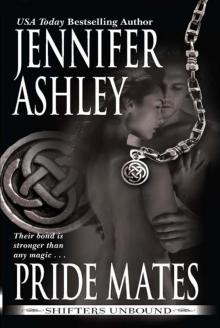 Pride Mates
Pride Mates The Duke's Perfect Wife
The Duke's Perfect Wife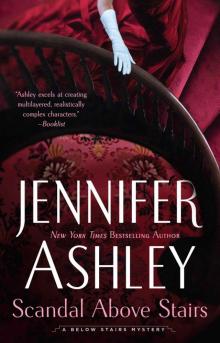 Scandal Above Stairs
Scandal Above Stairs White Tiger
White Tiger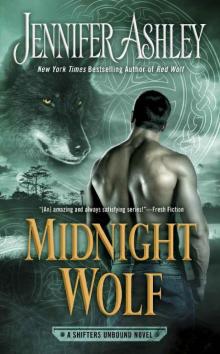 Midnight Wolf
Midnight Wolf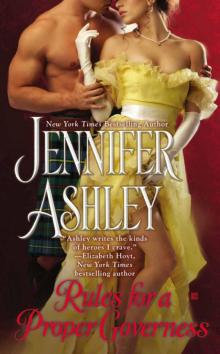 Rules for a Proper Governess
Rules for a Proper Governess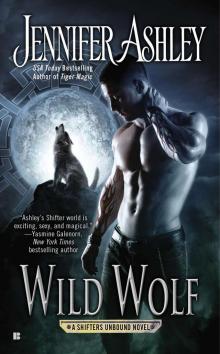 Wild Wolf
Wild Wolf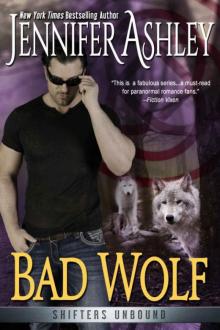 Bad Wolf
Bad Wolf Lion Eyes
Lion Eyes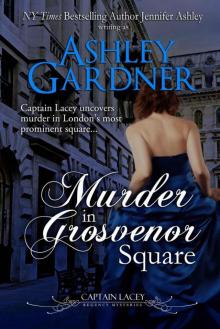 Murder in Grosvenor Square
Murder in Grosvenor Square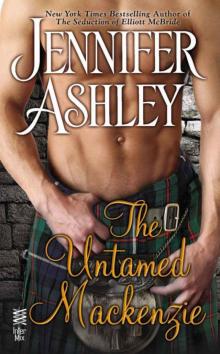 The Untamed MacKenzie
The Untamed MacKenzie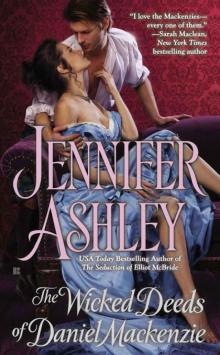 Wicked Deeds of Daniel Mackenzie
Wicked Deeds of Daniel Mackenzie Tiger Striped_Shifters Unbound
Tiger Striped_Shifters Unbound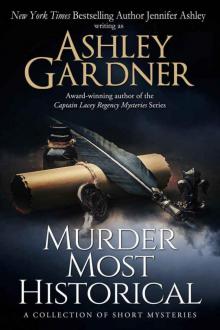 Murder Most Historical
Murder Most Historical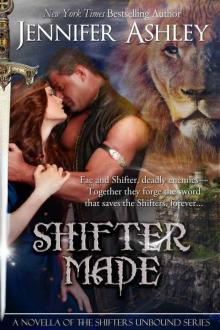 Shifter Made
Shifter Made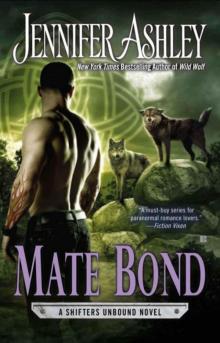 Mate Bond
Mate Bond Tiger Striped
Tiger Striped Bodyguard
Bodyguard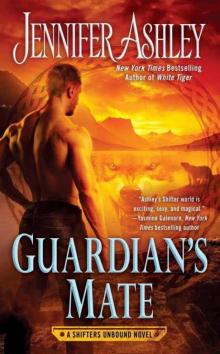 Guardian's Mate
Guardian's Mate From Jennifer Ashley, With Love
From Jennifer Ashley, With Love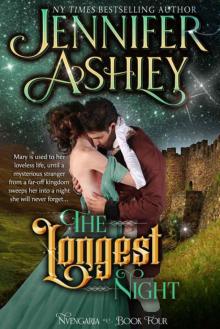 The Longest Night
The Longest Night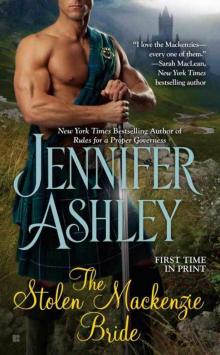 The Stolen Mackenzie Bride
The Stolen Mackenzie Bride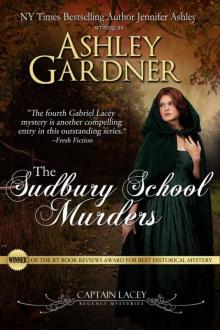 The Sudbury School Murders
The Sudbury School Murders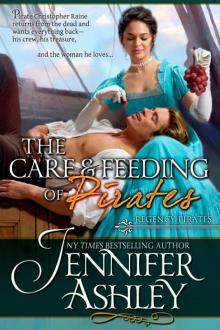 The Care & Feeding of Pirates
The Care & Feeding of Pirates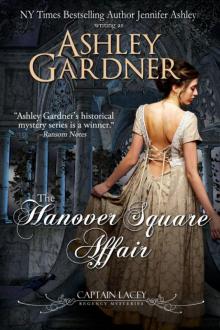 The Hanover Square Affair
The Hanover Square Affair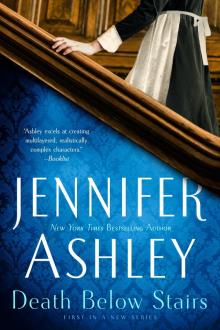 Death Below Stairs
Death Below Stairs Wild Things
Wild Things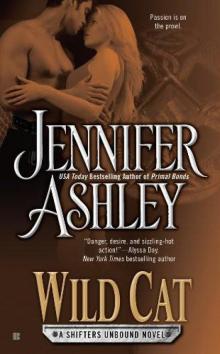 Wild Cat
Wild Cat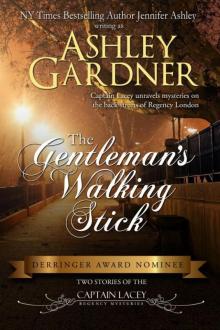 The Gentleman's Walking Stick
The Gentleman's Walking Stick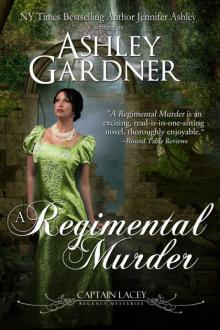 A Regimental Murder
A Regimental Murder Lone Wolf
Lone Wolf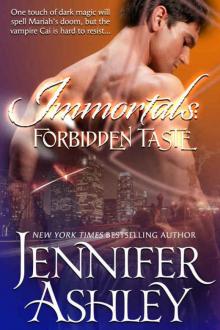 Forbidden Taste
Forbidden Taste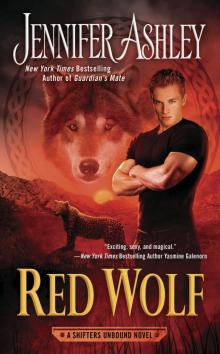 Red Wolf
Red Wolf The Madness of Lord Ian Mackenzie
The Madness of Lord Ian Mackenzie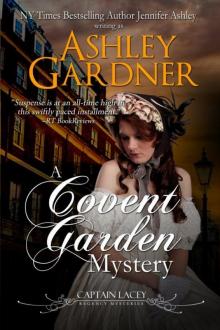 A Covent Garden Mystery
A Covent Garden Mystery The Pirate Next Door
The Pirate Next Door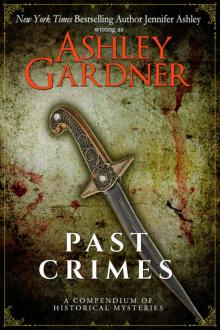 Past Crimes: A Compendium of Historical Mysteries
Past Crimes: A Compendium of Historical Mysteries Highlander Ever After
Highlander Ever After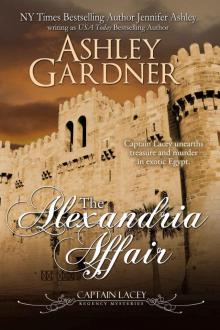 The Alexandria Affair
The Alexandria Affair A Shifter Christmas Carol
A Shifter Christmas Carol The Devilish Lord Will
The Devilish Lord Will Adam
Adam Kyle (Riding Hard Book 6)
Kyle (Riding Hard Book 6)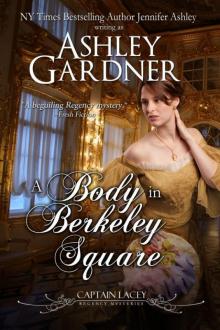 A Body in Berkeley Square
A Body in Berkeley Square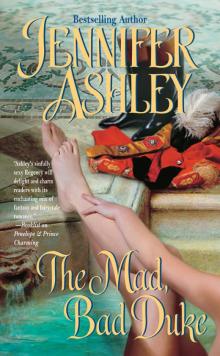 The Mad, Bad Duke
The Mad, Bad Duke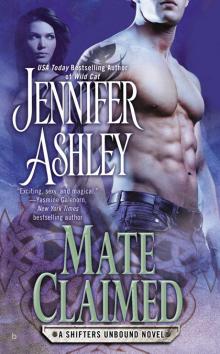 Mate Claimed
Mate Claimed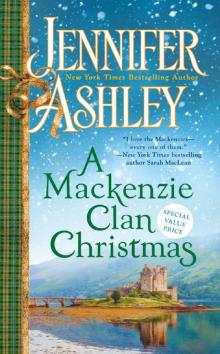 A Mackenzie Clan Christmas
A Mackenzie Clan Christmas The Seduction of Elliot McBride
The Seduction of Elliot McBride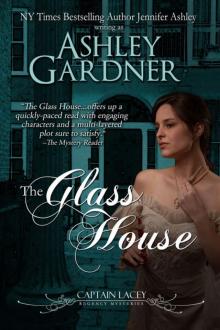 The Glass House
The Glass House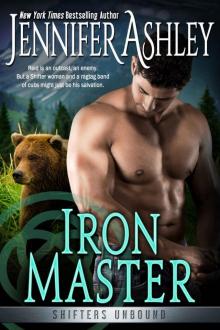 Iron Master (Shifters Unbound Book 12)
Iron Master (Shifters Unbound Book 12)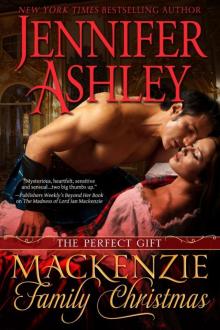 A Mackenzie Family Christmas: The Perfect Gift
A Mackenzie Family Christmas: The Perfect Gift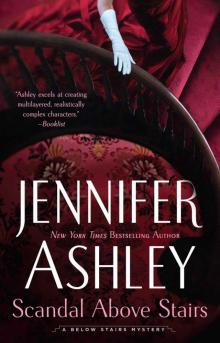 Scandal Above Stairs_A Below Stairs Mystery
Scandal Above Stairs_A Below Stairs Mystery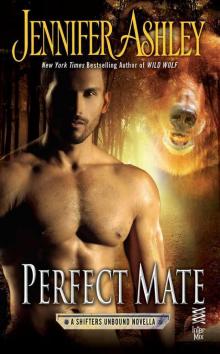 Perfect Mate
Perfect Mate Murder in the East End
Murder in the East End Snowbound in Starlight Bend
Snowbound in Starlight Bend Hard Mated
Hard Mated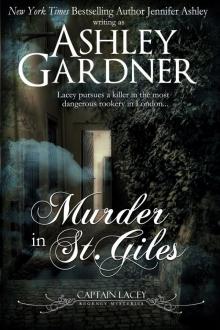 Murder in St. Giles
Murder in St. Giles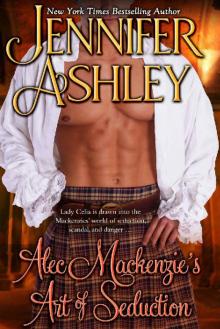 Alec Mackenzie's Art of Seduction
Alec Mackenzie's Art of Seduction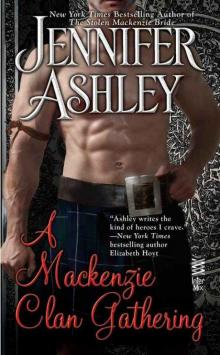 A MacKenzie Clan Gathering
A MacKenzie Clan Gathering Tyler
Tyler Lady Isabella's Scandalous Marriage
Lady Isabella's Scandalous Marriage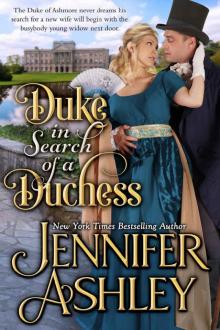 Duke in Search of a Duchess: Sweet Regency Romance
Duke in Search of a Duchess: Sweet Regency Romance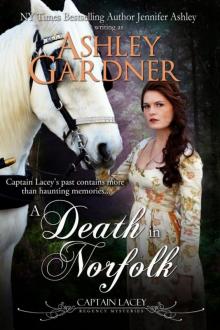 A Death in Norfolk
A Death in Norfolk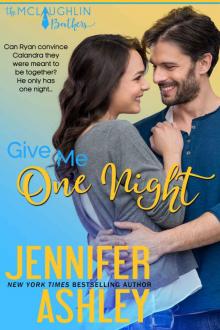 Give Me One Night (McLaughlin Brothers Book 4)
Give Me One Night (McLaughlin Brothers Book 4)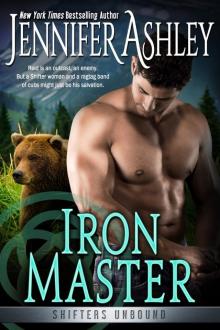 Iron Master
Iron Master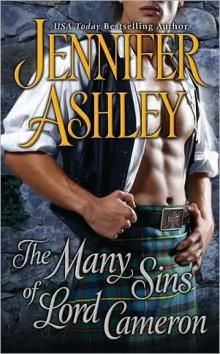 The Many Sins of Lord Cameron
The Many Sins of Lord Cameron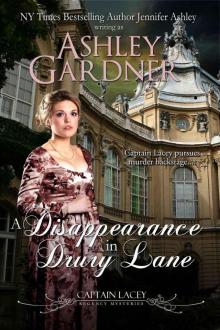 A Disappearance in Drury Lane
A Disappearance in Drury Lane Never Say Never (McLaughlin Brothers Book 3)
Never Say Never (McLaughlin Brothers Book 3) Death in Kew Gardens
Death in Kew Gardens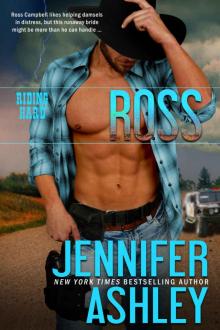 Ross: Riding Hard, Book 5
Ross: Riding Hard, Book 5 Ray: Riding Hard
Ray: Riding Hard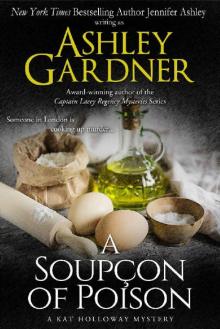 A Soupçon of Poison
A Soupçon of Poison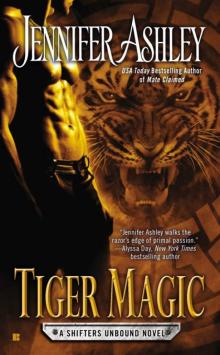 Tiger Magic
Tiger Magic The Pirate Hunter's Lady
The Pirate Hunter's Lady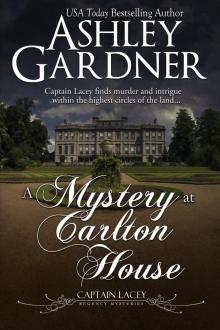 A Mystery at Carlton House
A Mystery at Carlton House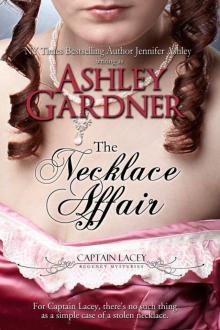 The Necklace Affair
The Necklace Affair Wolf Hunt
Wolf Hunt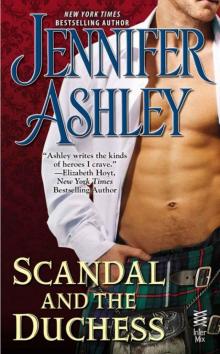 Scandal and the Duchess
Scandal and the Duchess Kyle
Kyle Why Don't You Stay? ... Forever (McLaughlin Brothers Book 2)
Why Don't You Stay? ... Forever (McLaughlin Brothers Book 2)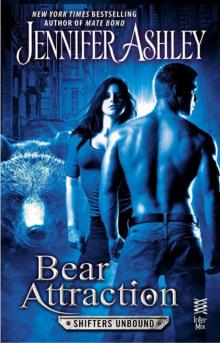 Bear Attraction
Bear Attraction The Gathering
The Gathering A Mackenzie Yuletide
A Mackenzie Yuletide Wild Things (Shifters Unbound #7.75)
Wild Things (Shifters Unbound #7.75) The Redeeming
The Redeeming The Seduction of Elliot McBride hp-5
The Seduction of Elliot McBride hp-5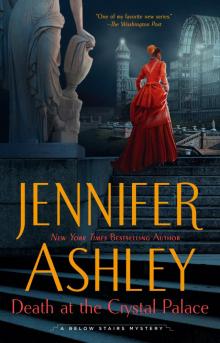 Death at the Crystal Palace
Death at the Crystal Palace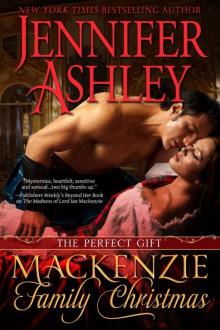 Mackenzie Family Christmas: The Perfect Gift (highland pleasures)
Mackenzie Family Christmas: The Perfect Gift (highland pleasures)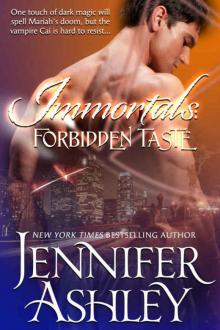 Forbidden Taste: A Vampire Romance (Immortals)
Forbidden Taste: A Vampire Romance (Immortals)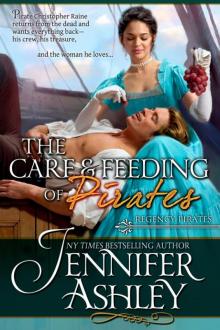 Care and Feeding of Pirates
Care and Feeding of Pirates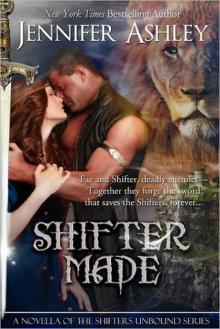 Shifter Made (shifters unbound)
Shifter Made (shifters unbound) Dark and Dangerous: Six-in-One Hot Paranormal Romances
Dark and Dangerous: Six-in-One Hot Paranormal Romances The Duke’s Perfect Wife hp-4
The Duke’s Perfect Wife hp-4 The Seduction of Elliot McBride (Mackenzies Series)
The Seduction of Elliot McBride (Mackenzies Series)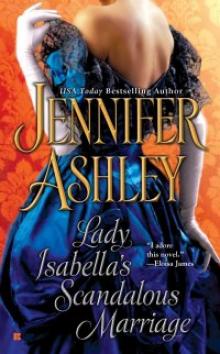 Lady Isabella's Scandalous Marriage hp-2
Lady Isabella's Scandalous Marriage hp-2 BodyGuard (Butterscotch Martini Shots Book 2)
BodyGuard (Butterscotch Martini Shots Book 2)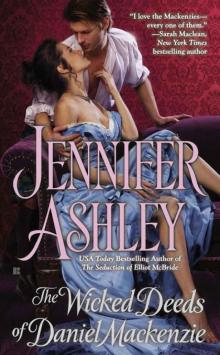 The Wicked Deeds of Daniel Mackenzie hp-6
The Wicked Deeds of Daniel Mackenzie hp-6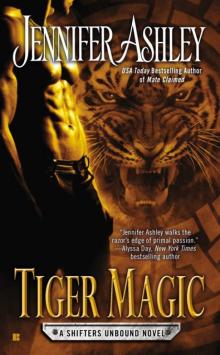 Tiger Magic su-5
Tiger Magic su-5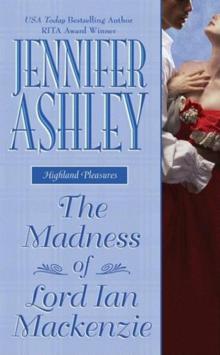 The Madness Of Lord Ian Mackenzie hp-1
The Madness Of Lord Ian Mackenzie hp-1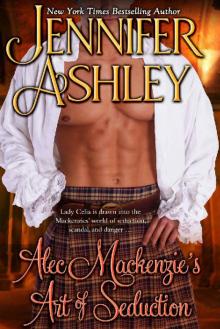 Alec Mackenzie's Art of Seduction: Mackenzies (Mackenzies Series Book 9)
Alec Mackenzie's Art of Seduction: Mackenzies (Mackenzies Series Book 9)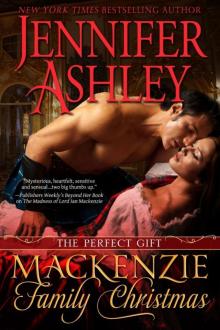 Mackenzie Family Christmas: The Perfect Gift
Mackenzie Family Christmas: The Perfect Gift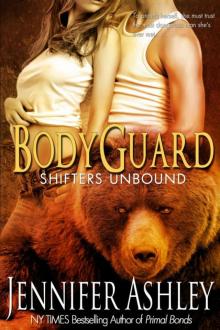 Bodyguard (Shifters Unbound #2.5)
Bodyguard (Shifters Unbound #2.5)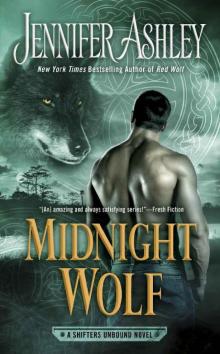 Midnight Wolf (A Shifters Unbound Novel)
Midnight Wolf (A Shifters Unbound Novel) White Tiger (A Shifter's Unbound Novel)
White Tiger (A Shifter's Unbound Novel) Cowboys Last All Night
Cowboys Last All Night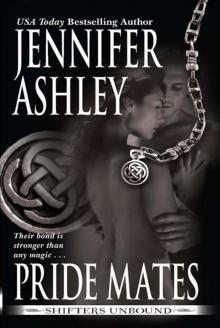 Pride Mates su-1
Pride Mates su-1 Hard Mated (shifters unbound )
Hard Mated (shifters unbound )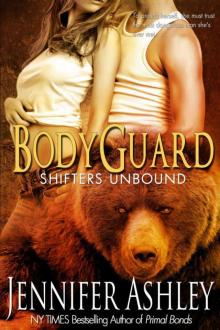 Bodyguard (shifters unbound )
Bodyguard (shifters unbound ) Snowbound in Starlight Bend: A Riding Hard Novella
Snowbound in Starlight Bend: A Riding Hard Novella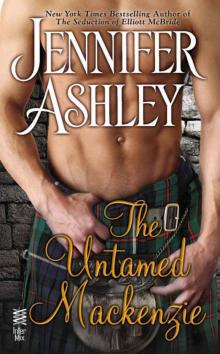 The Untamed Mackenzie (highland pleasures)
The Untamed Mackenzie (highland pleasures)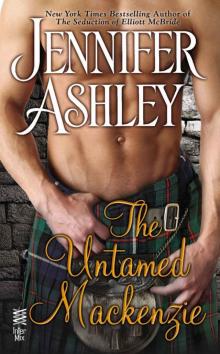 The Untamed Mackenzie (Mackenzies Series)
The Untamed Mackenzie (Mackenzies Series)![Highland Pleasures [6] The Wicked Deeds of Daniel Mackenzie Read online](http://i1.bookreadfree.com/i2/04/07/highland_pleasures_6_the_wicked_deeds_of_daniel_mackenzie_preview.jpg) Highland Pleasures [6] The Wicked Deeds of Daniel Mackenzie
Highland Pleasures [6] The Wicked Deeds of Daniel Mackenzie Lone Wolf (shifters unbound)
Lone Wolf (shifters unbound)![Shifters Unbound [5] Tiger Magic Read online](http://i1.bookreadfree.com/i2/04/11/shifters_unbound_5_tiger_magic_preview.jpg) Shifters Unbound [5] Tiger Magic
Shifters Unbound [5] Tiger Magic Tyler (Riding Hard Book 4)
Tyler (Riding Hard Book 4) Ross
Ross Bad Boys of the Night: Eight Sizzling Paranormal Romances: Paranormal Romance Boxed Set
Bad Boys of the Night: Eight Sizzling Paranormal Romances: Paranormal Romance Boxed Set From Jennifer Ashley, With Love: Three Paranormal Romances from Bestselling Series
From Jennifer Ashley, With Love: Three Paranormal Romances from Bestselling Series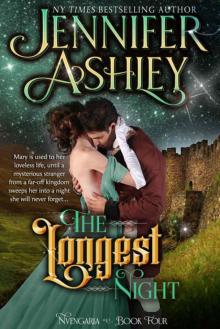 The Longest Night: Fantasy Romance (Nvengaria Book 4)
The Longest Night: Fantasy Romance (Nvengaria Book 4)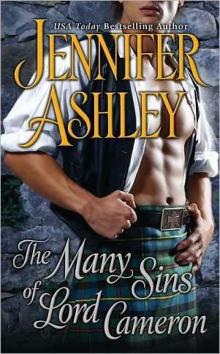 The Many Sins of Lord Cameron hp-3
The Many Sins of Lord Cameron hp-3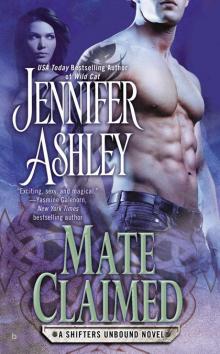 Mate Claimed su-4
Mate Claimed su-4